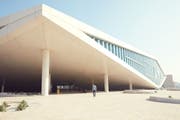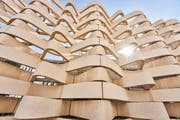Things to do
1. National Museum of Qatar
Designed by Pritzker Prize winning architect Jean Nouvel, the National Museum of Qatar, draws inspiration from and recreates the naturally occurring crystal formations known as the “desert rose”. The design features interlocking disks and spans a whopping 430,500 square feet, and is built around Sheikh Abdullah bin Jassim Al-Thani’s original palace, and seat of the government for 25 years. Use your Culture Pass Plus or Family membership to gain free and unlimited entry to galleries and exhibitions across Qatar Museums' network.
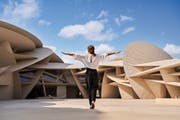 The National Museum of Qatar
The National Museum of Qatar
2. Museum of Islamic Art
On a purpose-built island abutting Doha’s central waterfront promenade, the Museum of Islamic Art was conceived by Pritzker Prize winning architect I.M. Pei, most known for designing the glass pyramid in the forecourt of the Louvre in Paris. The building was inspired by the Sabil, or ablution fountain in the 9th century Mosque of Ahmad Ibn Tulun in Cairo, Egypt. Traditional Islamic patterns (domes, geometric patterns, arches, water features) meld with modern architecture to produce this hallmark museum in Qatar. Use your Culture Pass Plus or Family membership to gain free and unlimited entry to galleries and exhibitions across Qatar Museums' network.
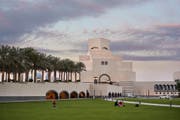 Museum of Islamic Art
Museum of Islamic Art
3. Qatar National Library
Designed by Rem Koolhaas, the diamond shaped exterior of the Qatar National Library belies its spacious interior, which prioritizes light and visibility. With over one million books, the library has automated book sorting to render any collection easily accessible, while a heritage library in the basement holds documents dating to the 7th century A.D.
 Qatar National Library
Qatar National Library
 Qatar National Library
Qatar National Library
4. Four Seasons Hotel Doha
Located along Four Seasons Hotel Doha’s private marina is the largest Nobu in the world. The three level ovoid restaurant, designed by the Rockwell Group, serves up the chef’s famous contemporary Japanese cuisine and delivers dazzling views of the capital’s skyline.
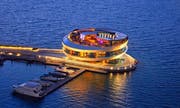 Nobu Doha
Nobu Doha
5. Qatar National Convention Centre (QNCC)
The Arata Isozaki designed Qatar National Convention Centre (QNCC) features intertwined sidra trees holding up the outer structure. With branches which cast a wide shade, the tree is traditionally a symbol of knowledge.
QNCC accommodates a range of events, and contains auditoria, meeting rooms and exhibition space.
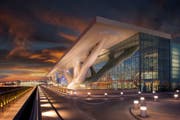 Qatar National Convention Centre (QNCC)
Qatar National Convention Centre (QNCC)
6. Sidra Medicine
Comprised of steel, glass and white ceramic tile, Sidra Medicine is a hospital and biomedical research centre. Designed by Cesar Pelli, whose works include the World Financial Center in New York, the Petronas Towers in Malaysia and the International Finance Centre in Hong Kong, the hospital has three towering sails, evoking Qatar’s seafaring past. Tranquil healing gardens filled with greenery and water are dramatically housed within the quiet, naturally lit space these atriums provide.
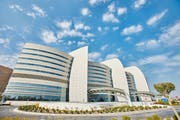 Sidra Medicine
Sidra Medicine
7. Qatar Faculty of Islamic Studies (QFIS)
This is home to the Education City Mosque, winner in the Religion category at the World Architecture Festival in 2015. The mosque rests on five large columns, representing the five pillars of Islam.
QFIS is based on the Islamic Kulliyya or ‘place where all knowledge is sought’. The spiral building plan and multiple routes connecting school to mosque speak to the suggestion that all knowledge ultimately derives from faith.
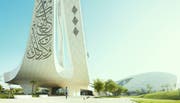 Qatar Faculty of Islamic Arts
Qatar Faculty of Islamic Arts
8. Al Janoub stadium
One of eight venues to host the FIFA World Cup 2022, Al Janoub Stadium, opened its doors in May 2019. Designed by Zaha Hadid, the 40,000-seat arena draws inspiration from the dhow boats which dot Qatar’s waters, and the pearls which were integral to its economy. Al Janoub Stadium is set to become the official stadium of Al Wakra Sports Club.
 Al Janoub Stadium
Al Janoub Stadium
9. Al Thumama stadium
Another purpose-built venue for the FIFA World Cup 2022, Al Thumama Stadium has been designed by Ibrahim M. Jaidah, a well respected Qatari architect, and is inspired by the gahfiya, a woven cap traditionally worn by men in many Arab countries. In keeping with the Supreme Committee’s broader view towards legacy, the 40,000 seat stadium’s capacity will be halved after the FIFA World Cup 2022, with seats being donated to countries requiring sporting infrastructure.
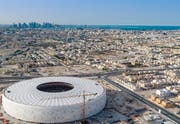 Al Thumama Stadium
Al Thumama Stadium
10. Al Bayt stadium
Located near the coastal city of Al Khor, Al Bayt Stadium marries heritage with sustainability. This distinctive stadium is covered with a canopy that recreates bayt al sha'ar, the tents used by Bedouin in the Arabian Gulf, and has a capacity of 60,000. In keeping with the Supreme Committee’s eye to legacy, the upper portion of the stadium’s modular seating can be dismantled and sent to developing nations in need of sports infrastructure.
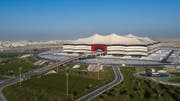 Al Bayt Stadium
Al Bayt Stadium
Things to know before travelling
-
Visas
Want to travel visa-free? Check if you qualify here.
-
Getting here
Planning your trip to Qatar? Check how to get here.
-
Travel tips
Make the most of your visit with our handy travel guide.
-
Getting around
From a dhow boat to our world-class metro, here’s how to easily explore Qatar.
Doha City Guidebook
Contact
